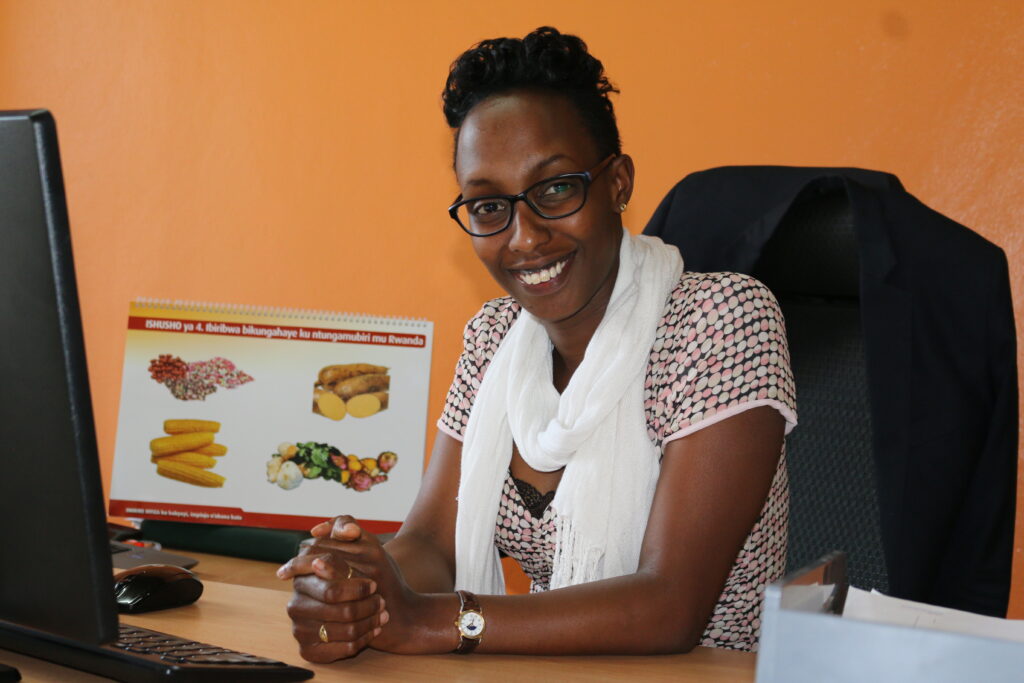Like the nutritious staple crop that her organization partnered with HarvestPlus to develop, Grace Nkundabombi’s career choice defied convention. Growing up in an all-girl family in Rwanda, Grace understood all too well the barriers to women’s advancement, like stereotypes and gender bias. In choosing science for a career, therefore, Grace was pursuing a dream as much as she was making a statement.
“The challenge facing me as I embarked on that path was two-fold,” she recounts. “First, the sciences were—and still are—dominated by boys, so girls often feel like outsiders. Second, because of that dominance, there seems to be a tacit assumption that boys are more suited to the sciences than girls, that girls are somehow less capable of science.”
That bias drove Grace to work hard and to prove that women could perform just as well as boys in science. Today, Grace is living her dream as a nutritionist, and is employed by the International Potato Center (CIP). She is involved in promoting the award-winning Orange-Fleshed Sweet Potato (OFSP) to improve nutrition in her country.
“I have always wanted to do something meaningful, something that helps to improve the community as a whole. This vitamin A-rich potato, along with high-iron beans and other biofortified nutritious crops, promises to do just that,” she says confidently. “These crops make important micronutrients easily accessible to everyone, especially the poor who live in rural areas and depend entirely on agriculture for a living.”
More than a million farming households are growing and eating biofortified crops across Rwanda. It is a success that belies the initial skepticism around biofortification. The conventional approach in the crop development field had long favored productivity over nutrition. Moreover, for vitamin A-biofortified crops like OFSP, it was generally assumed that the orange color would hinder adoption since farmers were accustomed to white-fleshed varieties.
The success of biofortified crops in Rwanda, therefore, owes a lot to the conviction and persistence of the organizations promoting them—just like Grace and her drive to become a scientist. Grace is certainly playing her part, devoting her expertise to educating communities on the nutritional benefits of these crops. Her work benefits from her previous experience teaching nutrition at a university, as well as her instincts as a mother who wants every Rwandan child to have a healthy life.
“I want to see a healthier generation of Rwandans, one that is free of hunger and malnutrition,” she says with characteristic passion. “Biofortified crops can play an important role in realizing that vision, so we must do everything we can to increase the availability of these crops.”
*Photo Credit: L.Umulisa/HarvestPlus
**The author is a Communications Officer with HarvestPlus-Rwanda
